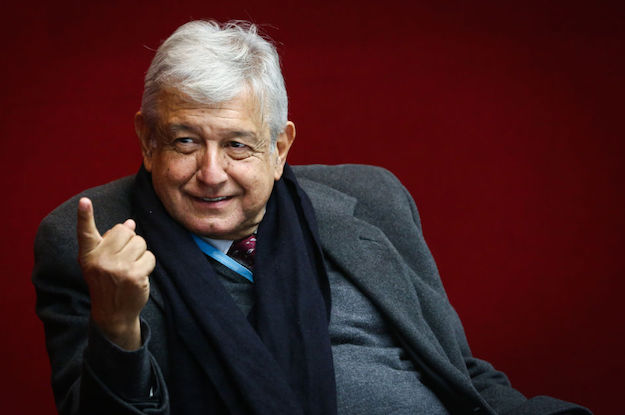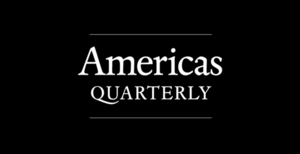
Andres Manuel Lopez Obrador, president of the left-wing political party National Regeneration Movement (MORENA)
—–
BY OLIVER STUENKEL | OCTOBER 5, 2017
Fourteen Latin American countries will hold elections within two years. Most share a rejection of the establishment, and the search for a savior.
http://americasquarterly.org/content/one-big-trend-latin-americas-coming-elections
“Anybody who tells you they know who will win is misinformed,” a Mexican political analyst recently told me in a debate about next year’s presidential elections. In a scenario where only 2 percent of Mexicans trust political parties and only 4 percent believe the country is on the right track, she said, anything can happen.
The heated debate about campaign finance is just one sign of growing rage in the country after a string of corruption scandals. Referring to the face-off between populist Andrés Manuel López Obrador and establishment candidates, she sighed, “we are between the uncertainty of a messiah and the certainty of the kleptocrats.”
This description matches, with only slight alterations, the situation in several of the 14 countries that will head to the polls in the next two years. Brazil, Chile, Colombia, Costa Rica, Honduras, Paraguay, Mexico and Venezuela will organize presidential elections in the next 18 months; Argentina, Bolivia, El Salvador, Guatemala, Panama and Uruguay will do so 2019. In Colombia, for example, where political parties face a legitimacy crisis, there are around 30 presidential candidates, most of whom will run as independents, and even seasoned observers confess it is impossible to make any serious predictions.
Only one thing, however, seems certain: A mix of low commodity prices (traditionally leading to low growth, low approval ratings of the incumbent, and low public tolerance with corruption) and diminished trust in the political class and democracy itself are likely to make the upcoming electoral cycle in Latin America one of profound change rather than continuity. Of all the elections taking place in 2018, only Honduras’ President Juan Orlando Hernández (under constitutionally controversial circumstances) and Venezuela’s President Nicolás Maduro (in a vote that will likely not be free) can expect to remain in power.
While change is not a bad thing per se – in fact, political elites badly need a breath of fresh air – there are reasons to worry that broad discontent with politics in general will facilitate the rise of populist outsiders, several of whom have laid out authoritarian approaches and reject the slow and often frustrating negotiations that are inherent to checks and balances. In Colombia, many fear a populist occupying the Casa de Nariño next year – for example, as a result of a run-off between far-leftist Gustavo Petro and a right-wing supporter of former President Álvaro Uribe.
In Brazil, the mantra frequently articulated by government officials that “the institutions are working” no longer convinces everyone. A growing number of analysts describe the so-called Lava Jato corruption investigations, led by independent and fearless judges, not as the rule but as the exception, and increasingly wonder whether the political elite is capable of correcting its mistakes. None of the major parties – the governing PMDB, the center-right PSDB and Workers’ Party (PT) – have systematically…
Read full article here.









